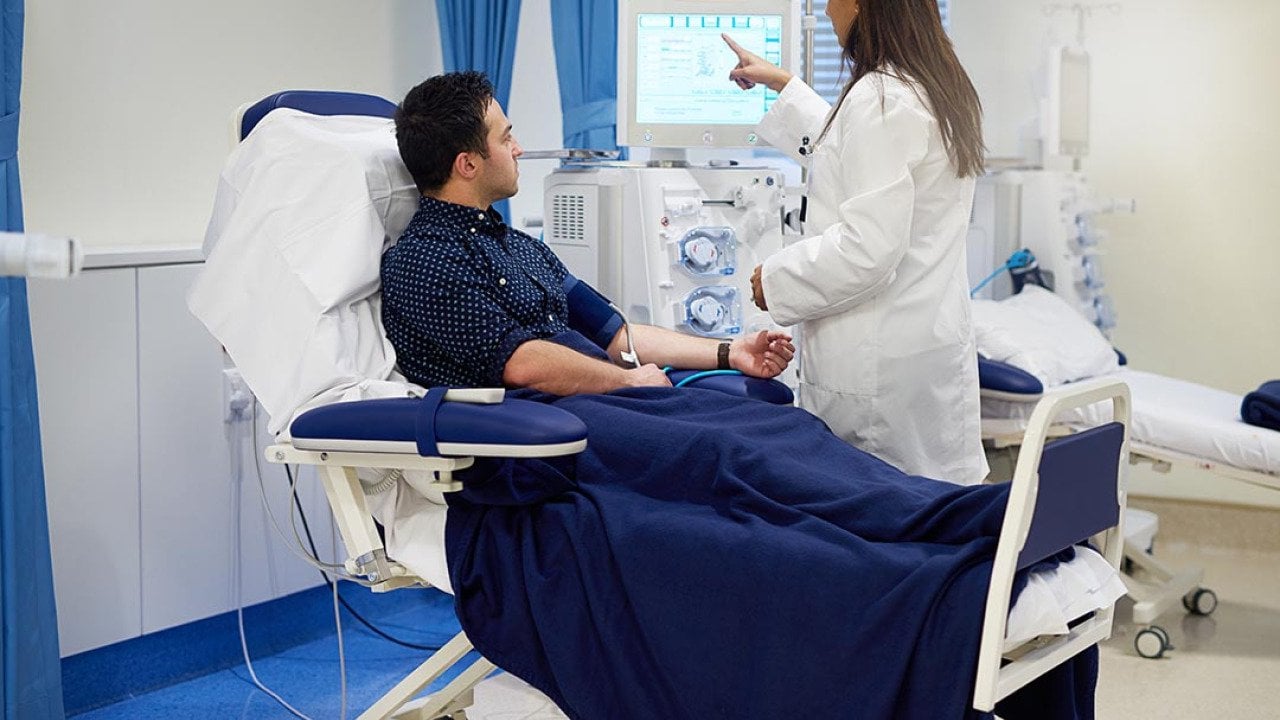10 US cities providing accessible dialysis services

Yuri A // Shutterstock
10 US cities providing accessible dialysis services
Access to dialysis care remains a life-or-death issue for the nearly 520,000 Americans currently on dialysis, according to National End Stage Renal Disease Census data. While the United States has made strides in expanding services, with 7,556 dialysis centers in the ESRD networks nationwide as of March 2025, regional disparities persist. Rural patients travel 2.5 times farther than urban patients to reach care (an average of 15.9 miles, compared to 6.2 miles for urban patients), and approximately 40% of U.S. counties lack any dialysis facility.
Dialysis Centers, a national dialysis centers directory, highlights cities leading in dialysis access, based on Centers for Medicare & Medicaid Services facility data, state records, and patient satisfaction metrics.
Top cities for accessible dialysis services
1. Houston, Texas
Houston offers high facility density through its DaVita and Fresenius locations, minimizing patient travel. Most sites in this city offer home dialysis options, including peritoneal and home hemodialysis.
2. Las Vegas, Nevada
With 13 DaVita centers rated four to five stars, the compact city design of Las Vegas supports shorter travel distances for residents and visitors.
3. Orlando/Celebration, Florida
Patients looking for dialysis care can find broad coverage across metro Orlando, with patient reviews highlighting strong home dialysis training programs and resources for visiting patients.
4. Atlanta, Georgia
An extensive network spans diverse neighborhoods in Georgia’s capital city and is supported by comprehensive services, including social work, nutrition, and care coordination. Atlanta also ranks highly for travel dialysis support.
5. San Diego, California
San Diego features advanced options like Balboa Nephrology’s vascular access center and a strong reputation for patient satisfaction.
6. Chicago, Illinois
Dozens of DaVita and Fresenius centers in Chicago provide excellent urban access and multiple dialysis modalities.
7. San Francisco Bay Area, California
The UCSF Dialysis Center is known for clinical excellence. The Bay Area also leads in vascular access innovation.
8. Salt Lake City, Utah
Compact geography in Salt Lake City allows easy access to five-star DaVita and Fresenius locations, with solid peritoneal dialysis programs.
9. San Antonio, Texas
Metro-wide coverage in San Antonio, combined with culturally competent care and travel-friendly services, make this a top destination.
10. Myrtle Beach, South Carolina
Myrtle Beach is a coastal vacation hotspot offering dialysis travel services and multiple DaVita centers throughout the region.
Key factors in dialysis accessibility
Top-performing cities average 4.1 centers per 100,000 residents, with 86% of all dialysis sessions occurring in urban areas, according to ESRD Networks.
Although 40.4% of rural facilities are five-star, urban centers offer more diverse services:
- 50.8% of urban facilities offer peritoneal dialysis
- 28.5% offer home hemodialysis
- 16.0% offer late-shift dialysis
Patients in rural counties travel an average of 25.2 miles, compared to 5.5 miles in well-served cities, and in counties without facilities, travel increases by 14.3 miles. Greater travel distance is linked to poorer outcomes, including higher mortality and skipped treatments.
While these 10 cities stand out for accessible dialysis care, gaps remain. The closure of 215 dialysis centers between 2021 and 2023 has only widened those divides.
The Advancing American Kidney Health initiative aims to shift 80% of patients to home dialysis or transplant by 2025. These cities provide a roadmap to meet that goal.
For patients and families, living in or visiting these metros can lead to less travel, expanded care choices, and improved quality of life.
This story was produced by Dialysis Centers and reviewed and distributed by Stacker.
![]()



